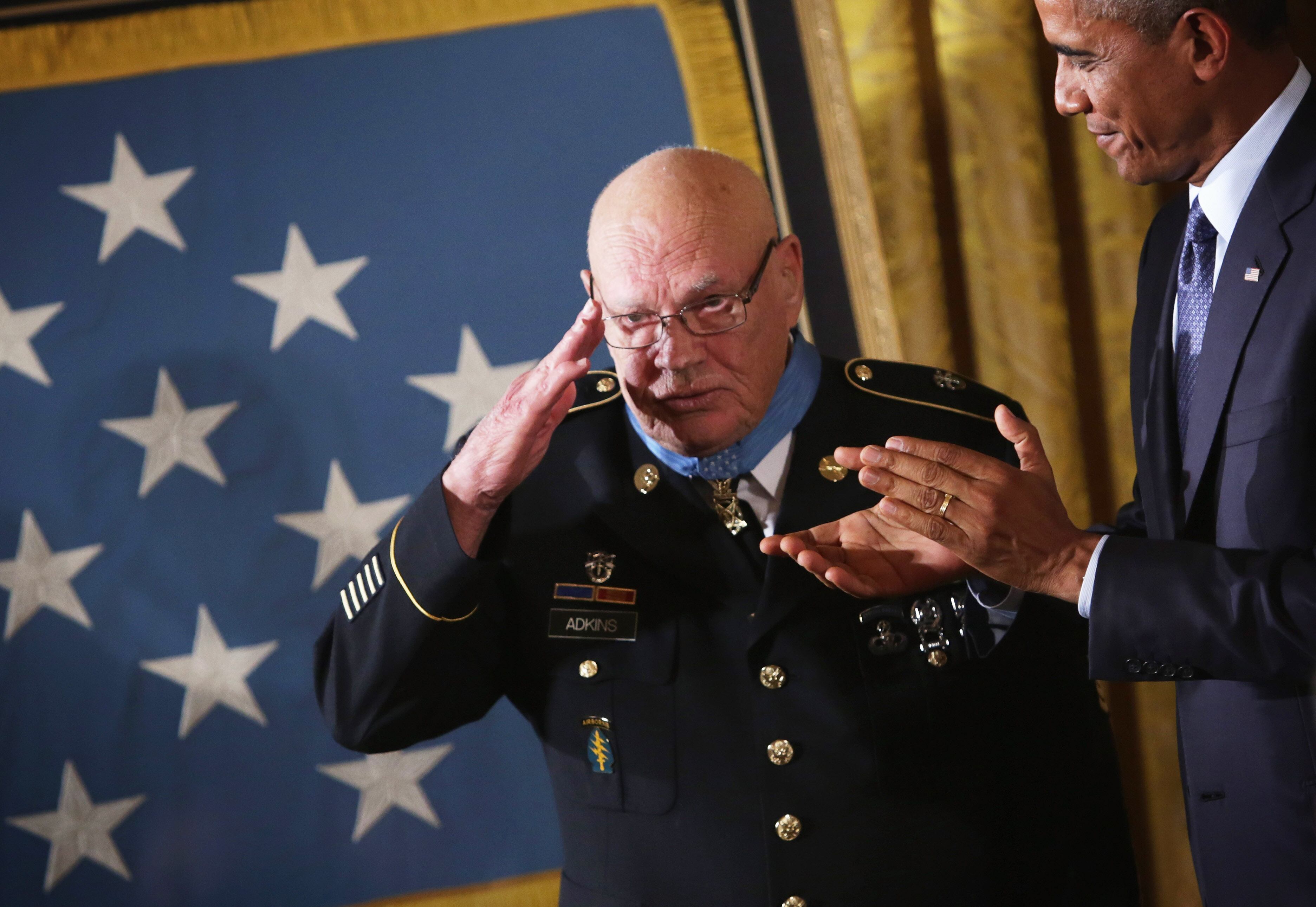Marine officials are expressing cautious optimism after the release of new data showing a dramatic dip in suicides among active-duty personnel suicides last year.
In 2014, there were 34 active-duty Marine suicide deaths, compared with 45 in 2013, according to date released by the Defense Department Tuesday. That represents a year-over-year dip of more than 22 percent.
It also means the Marine Corps saw the lowest number of suicides last year of any of the armed forces. Overall, the DoD saw an increase of about 6 percent in suicides on the active-duty side in 2014.
The data puts the Marine Corps on a two-year downward trajectory in suicide deaths. After a jump from 32 deaths in 2011 to 48 in 2012, the Corps saw a drop of roughly 6 percent in 2013.

Marine officials say they're cautious to read too much into this good news, though.
"I'm always reminded that trying to predict suicide is like predicting the weather; it's very difficult to predict trends," said Dr. Adam Walsh, section head for the Community Counseling Program and Suicide Initiatives at Headquarters Marine Corps. "We may be cautiously optimistic, but there's no spiking the football or anything like that."
Still, Walsh pointed to a number of new Marine Corps initiatives that may have contributed to a decline in year-over-year suicides.
Among them is the Marine Intercept Program, launched in late 2013, which links commanding officers and community counselors and arranges regular check-ins for Marines following suicide ideation or attempt. To date, Walsh said 1,500 Marines have been assisted by the program, and no suicide deaths have been reported among troops receiving MIP services.
Another key development was the launch of a summer suicide prevention campaign last year, Walsh said.
"We've seen a trend that each summer we seem to have more suicides than other seasons," he said.
Officials attribute the trend, he said, to the fact that many permanent change of station moves occur in the summer. Removed from friends and ordinary routines, Marines can lose their sense of identity and belonging, leaving them more vulnerable, Walsh said.
To counter this concern, the campaign raised awareness of potential risks and arranged a buddy system to help Marines acclimate to new duty stations. Walsh said the Corps plans to launch a similar campaign at the start of this summer.
While the last few years have seen a decrease in combat deployments as the Corps ended its mission in Marines pulled out of Afghanistan, that development is not believed to have contributed to the dip in suicide deaths, Walsh said. He pointed to a study released by JAMA Psychiatry Wednesday that showed no correlation between combat deployments and suicides, and said Marine Corps data corroborated this finding.
The Marine Corps has also seen success in training community members on use of the Columbia Suicide Severity Rating Scale, a tool developed by the university that helps to assess risk and target those who signal elevated suicide risk for help and care. In the last 12 months, Walsh said, some 1,100 community counselors, chaplains, victims' advocates and attorneys have been trained to use the tool.
The Marines are also promoting new classes to military spouses and other family members aimed at suicide prevention through practical stress management skills. Titled "Conquering Stress with Strength," the class emphasizes relaxation and healthy interactions to head off dangerous ideations and mindsets.
Walsh said the Marine Corps will continue to look for ways to incorporate family and community members in suicide prevention efforts as they press forward with their strategy.
"We can't take our eye off the ball or our foot off the gas," Walsh said. "We'll continue to focus on prevention and best practices."




